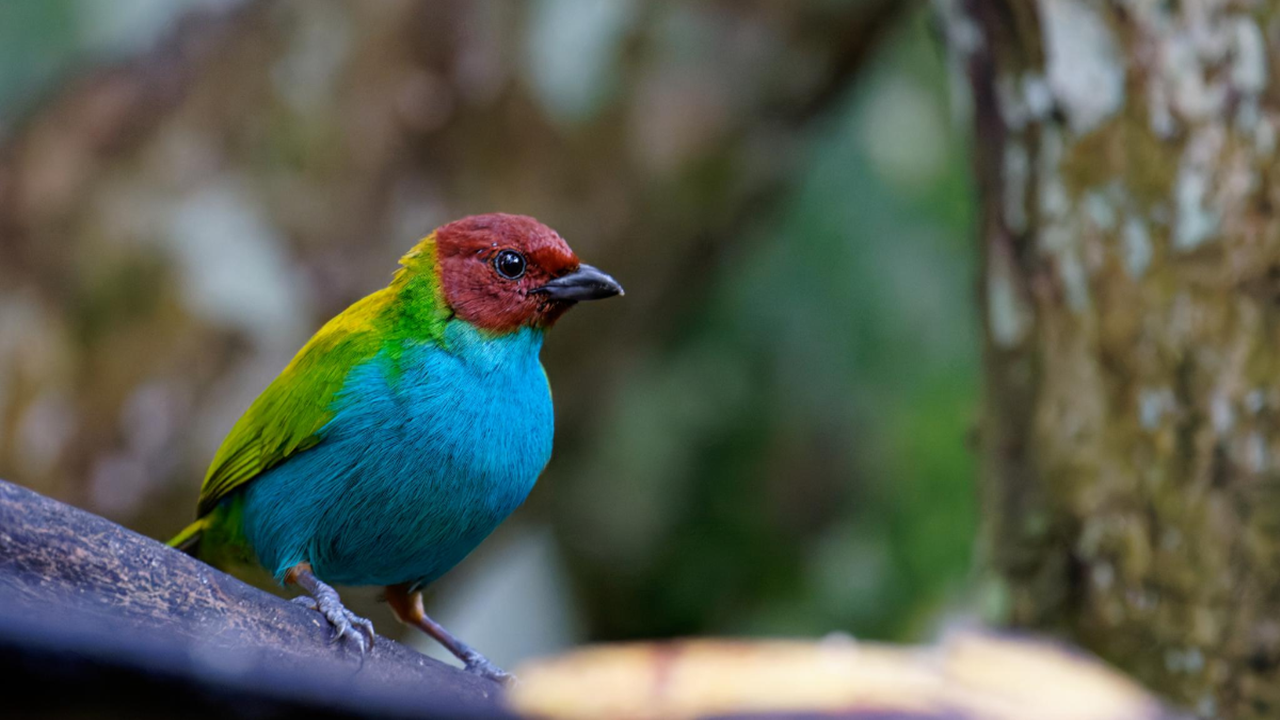SA Reaffirms Global Biosecurity Commitment at WOAH Threat Reduction Summit
The pledge was made by Agriculture Minister John Steenhuisen during his address at the Global Threat Reduction Conference of the World Organisation for Animal Health (WOAH) in Geneva, Switzerland, on Tuesday.

- Country:
- South Africa
South Africa has reiterated its strong commitment to advancing global biosecurity, animal health, and food safety, emphasizing the importance of a One Health approach that integrates human, animal, and environmental well-being. The pledge was made by Agriculture Minister John Steenhuisen during his address at the Global Threat Reduction Conference of the World Organisation for Animal Health (WOAH) in Geneva, Switzerland, on Tuesday.
The three-day conference, held from 28–30 October 2025, has gathered world leaders in health security, biotechnology, and veterinary science to discuss strategies for reducing biological threats and building global resilience against zoonotic diseases.
One Health Approach: Integrating Human, Animal, and Environmental Protection
Minister Steenhuisen underscored that South Africa's biosecurity framework is grounded in the One Health philosophy, which recognizes that the health of people, animals, and ecosystems are interconnected and interdependent.
"Our approach to biological threat reduction is anchored in the One Health values, which acknowledge that the health of people, animals and the environment are inseparably linked," Steenhuisen said.
He stressed that biological threats—whether naturally occurring, accidental, or deliberate—pose significant risks to both national and international health security. To address these, South Africa has implemented a national strategy focusing on early detection, prevention, and rapid response, supported by robust governance structures, scientific research, and international cooperation.
National AMR Strategy: Combating Antimicrobial Resistance
A key pillar of this national effort is the National Antimicrobial Resistance (AMR) Strategy Framework, which applies a holistic One Health lens to address antimicrobial misuse and resistance across human, animal, and environmental sectors.
The initiative includes:
-
Coordinated national surveillance systems to monitor resistance patterns
-
Upgraded laboratory diagnostics to detect resistant strains
-
Training and awareness campaigns for veterinarians, farmers, and consumers
-
Promotion of responsible antibiotic use and alternatives such as vaccination, probiotics, and better biosecurity practices
"Within the veterinary sector, our focus is on reducing the misuse and overuse of antimicrobials, strengthening animal husbandry practices, and promoting alternatives such as vaccination and improved biosecurity," Steenhuisen explained.
He also highlighted South Africa's role within the Southern African Development Community (SADC) AMR platform, where the country works with regional partners to harmonise surveillance protocols, share data, and develop coordinated responses to antimicrobial resistance.
Strengthening Meat Safety and Traceability Systems
Ensuring the integrity of food systems remains another priority area in South Africa's biosecurity agenda. The Minister reaffirmed that meat safety and traceability are critical components of safeguarding both public health and market access.
Under the Meat Safety Act, all abattoirs must undergo strict inspection and approval processes to ensure compliance with hygiene, animal welfare, and traceability standards.
"The South African Meat Industry Company (SAMIC) audits and certifies abattoirs, while the International Meat Quality Assurance Services (IMQUAS) system enhances traceability and transparency from abattoir to trade," Steenhuisen said.
This electronic meat inspection system—one of the most advanced in Africa—has bolstered confidence among domestic consumers and international trading partners by ensuring full accountability across the meat value chain.
Border Controls and Import Inspections
South Africa also enforces stringent import controls to prevent the introduction of animal diseases and pathogens. All animal products entering the country are subject to veterinary import permits, risk assessments, and physical inspection at designated ports of entry.
These biosecurity measures, Steenhuisen noted, are essential to reducing biological threats, especially in a world where global trade and mobility increase the risk of transboundary disease spread.
World-Class Research and Vaccine Development
A major strength of South Africa's animal health system lies in its research capacity. The Agricultural Research Council (ARC) hosts nine WOAH reference laboratories, each focusing on key endemic animal diseases including:
-
Foot and Mouth Disease (FMD)
-
African horse sickness (AHS)
-
African swine fever (ASF)
-
Bluetongue (BT)
-
Lumpy-skin disease (LSD)
-
Rabies
-
Rift Valley fever (RVF)
-
Sheep and goat pox (SGP)
-
Theileriosis
These laboratories operate under ISO/IEC 17025 standards and maintain accreditation through the South African National Accreditation System (SANAS), ensuring they meet global benchmarks for testing and calibration competence.
Advancing Foot and Mouth Disease Vaccine Production
Highlighting recent scientific breakthroughs, Steenhuisen announced that South Africa has made significant progress toward self-sufficiency in Foot and Mouth Disease (FMD) vaccine production. The ARC has already registered a locally developed FMD vaccine and is in the process of constructing a dedicated factory for large-scale production.
"We are now moving from pilot production to full manufacturing capacity. By April 2026, we expect to produce thousands of vaccine doses domestically," the Minister said.
This development marks a turning point for South Africa's veterinary resilience, as the country has previously relied heavily on imported vaccines to control outbreaks.
Global Cooperation for a Safer Future
The Global Conference on Biological Threat Reduction, convened by WOAH, serves as a global forum for collaboration among policymakers, scientists, and private-sector leaders to address the evolving landscape of biothreats, including zoonotic diseases, antimicrobial resistance, and laboratory biosecurity.
Through its active participation, South Africa aims to strengthen international partnerships, share expertise, and contribute to global efforts to safeguard food systems and health security.
"Our goal is to ensure that South Africa remains a proactive player in protecting animal and public health, reducing biological risks, and ensuring that our agricultural sector continues to thrive in a safe, sustainable, and globally connected environment," Steenhuisen concluded.
ALSO READ
-
South Africa Triumphs in T20 Opener Against Pakistan
-
Zachary Porthen Makes Debut as South Africa Reignites the 'Miracle of Brighton' Challenge Against Japan
-
South Africa's Maize Harvest Booms with 27% Increase
-
Spin Challenge: South Africa vs England in Women's World Cup Semifinal
-
Championing Cultural Diversity: South Africa's Call for Inclusive Language Technologies at G20









